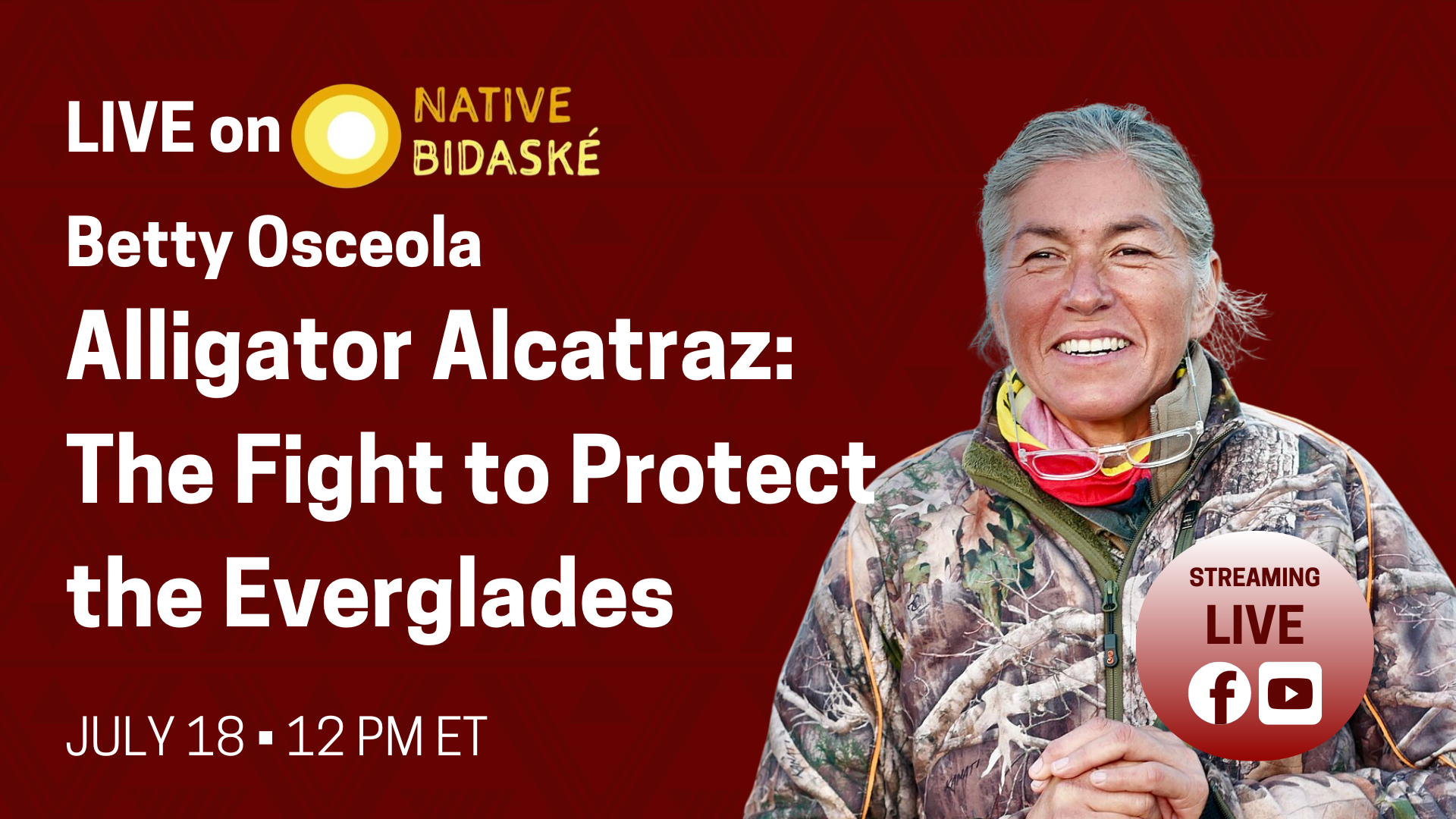
- Details
- By Native StoryLab
In the heart of the Florida Everglades, a battle is brewing that could redefine the meaning of sovereignty, environmental protection, and cultural preservation.
When the U.S. government erected a massive migrant detention center dubbed "Alligator Alcatraz" on the traditional lands of the Miccosukee and Seminole tribes, Betty Osceola knew this was more than just another infrastructure project—this was an invasion. It’s a sacred violation. The facility sits on land her ancestors once danced on.
Why does this matter? Because it’s not just a local issue. It’s a flashpoint of history, sovereignty, and survival. The Everglades are home to more than fragile wetlands—they hold the story of a people who never surrendered their land. Osceola, who comes from the Panther Clan and leads prayer walks across the region, says the damage goes far beyond the airstrip.
DON’T MISS THE CONVERSATION
To hear Betty Osceola’s powerful story and learn why this fight matters to all of us, watch Native Bidaské this Friday.
TUNE IN:
Date: Friday, July 18, 2025
Time: 12:00 p.m. ET / 11:00 a.m. CT / 10:00 a.m. MT / 9:00 a.m. PT
Streaming on: Facebook, YouTube, and the Native News Online website
Help us defend tribal sovereignty.
At Native News Online, our mission is rooted in telling the stories that strengthen sovereignty and uplift Indigenous voices — not just at year’s end, but every single day.
Because of your generosity last year, we were able to keep our reporters on the ground in tribal communities, at national gatherings and in the halls of Congress — covering the issues that matter most to Indian Country: sovereignty, culture, education, health and economic opportunity.
That support sustained us through a tough year in 2025. Now, as we look to the year ahead, we need your help right now to ensure warrior journalism remains strong — reporting that defends tribal sovereignty, amplifies Native truth, and holds power accountable.
 The stakes couldn't be higher. Your support keeps Native voices heard, Native stories told and Native sovereignty defended.
The stakes couldn't be higher. Your support keeps Native voices heard, Native stories told and Native sovereignty defended.
Stand with Warrior Journalism today.
Levi Rickert (Potawatomi), Editor & Publisher
